台州当代美术馆由大舍建筑设计事务所设计,位于台州具有独特历史底蕴的沙门粮库文创区内。粮库至今还拥有大面积的前苏联风格的厂房和库房,新的开发将通过合理的修缮与保留,重整和更新沙门粮库区。美术馆试图以现浇混凝土的粗砺与平行筒拱空间的细腻营造崭新美术感的空间氛围,筒拱的结构非常好地结合了展厅的灯光设计,并且在空间上沟通着建筑的内外。
在艺术家殷漪和刘亚囡的声音与舞蹈的创作中,项目被呈现为名为《美术馆》的两段一长一短的影像。本文为短片导演殷漪与美术馆主持建筑师柳亦春所撰《即时的美术馆》《即物的美术馆》,并附影像于篇首、文末。
《美术馆》4分钟版 视频制作:殷漪
即时的美术馆
ART MUSEUM IN TIME
殷漪
20180707
拍摄间隙,我会在三楼最大的展厅里找个角落,坐在我们唯一的折叠椅里看整个展厅。
During the shooting, I find a corner in the largest exhibition hall on the third floor, sitting there on the only folding chair we have and look at the whole space.
墙在我身后的一个相交的直线开始由两边向远处延伸,那种感觉真的是向远处。目所能及的,好像都慢慢凝固起来。这让我想起视觉艺术中会常常提到的“凝视”。从艺术理论的角度去说,“凝视”是发生在瞬间与静止之中的。这样看来,运动影像的媒体属性又恰恰是要超越“凝视”的。于是,我很好奇,如何在影像里拍摄出“凝视感”。我使用了很多平面化的镜头。把纵深的空间通过直线拼接起来。这些画面里都会出现人。那会是一种很微妙的感觉,就像用筷子去夹玻璃弹珠。一种临界感。因为人会在这个好像凝固的画面里非常细微地动,因为呼吸,因为引力与肌肉骨骼之间相反的力。
The walls diverge from a single line behind me and extend on both sides into the distance. The end is so far away that everything within my vision is beginning to curdle. This reminds me of the "gaze" that is often mentioned in visual art. From the perspective of art theory, “gaze” occurs in the moment and in the stillness; that is to say, the moving image inherently transcends “gaze". So I am curious how the sense of staring could be captured in moving image. I use many flattened frames, linking in-depth space with line. People show up in these frames. It is a very subtle feeling, like using chopsticks to pick up glass bead – a feeling of criticality; because people move inconspicuously in such a curdled-like frame, due to respiration, due to the counter-force between the gravity and the muscles and bones.

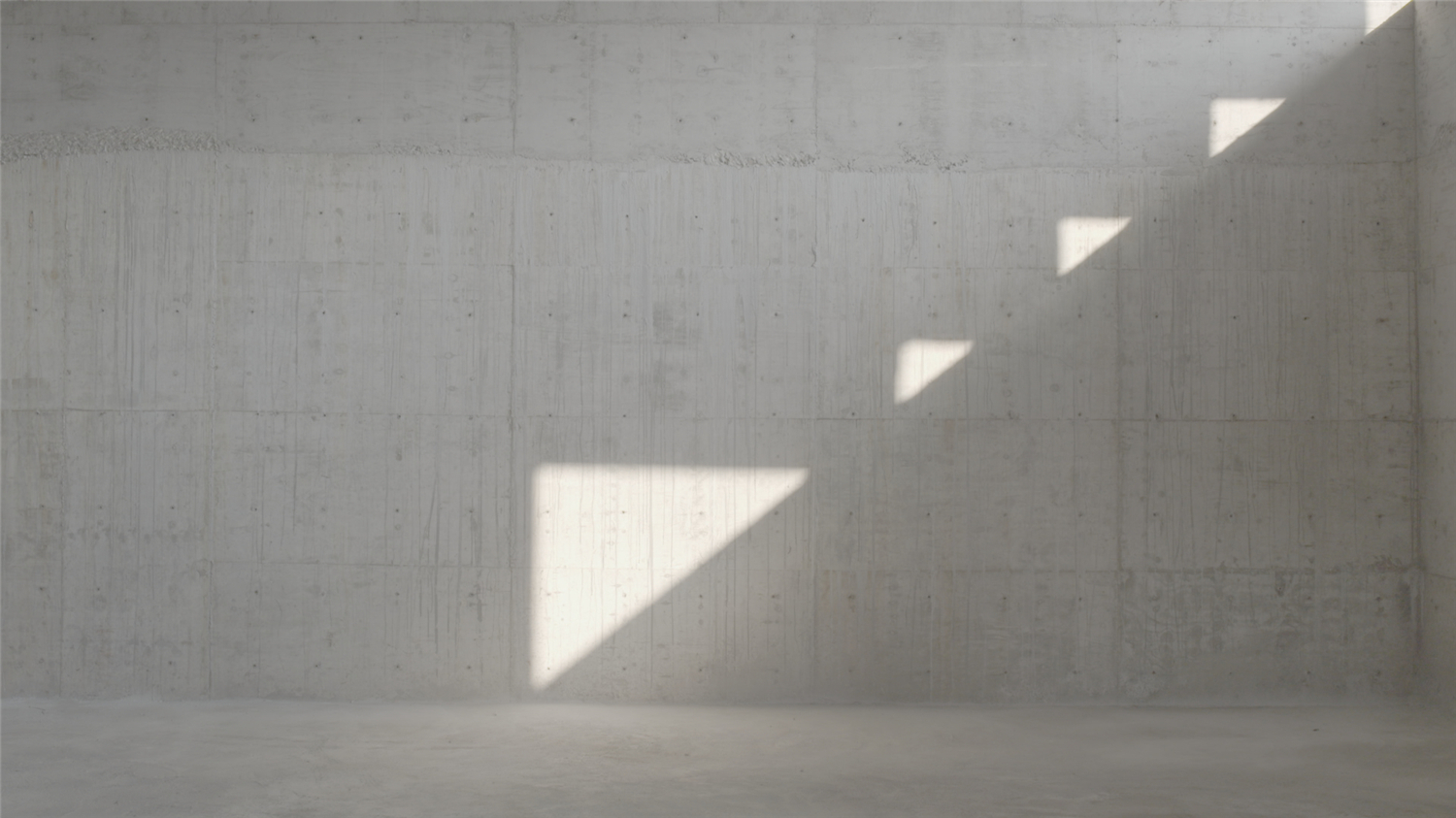
我坐在三楼展厅的角落,慢慢感觉到了时间。因为我渐渐发现可以听到摄制工作人员的说话声。很轻,我不清楚他们在哪个位置,可能是四楼,也可能在一楼,很模糊。还有美术馆外面的声音,电动车,咳嗽,或是其他什么。声音是和时间黏连在一起的。
I sit in the corner of the third-floor exhibition hall, gradually having the sense of time. It is because I can start to hear the crew talking. Very light, I cannot locate them. Perhaps they are on the fourth floor, perhaps the first, the sound is vague. There are also sounds from outside the art museum, the electro-mobile, the coughing, or others. The sound is adhered to time.
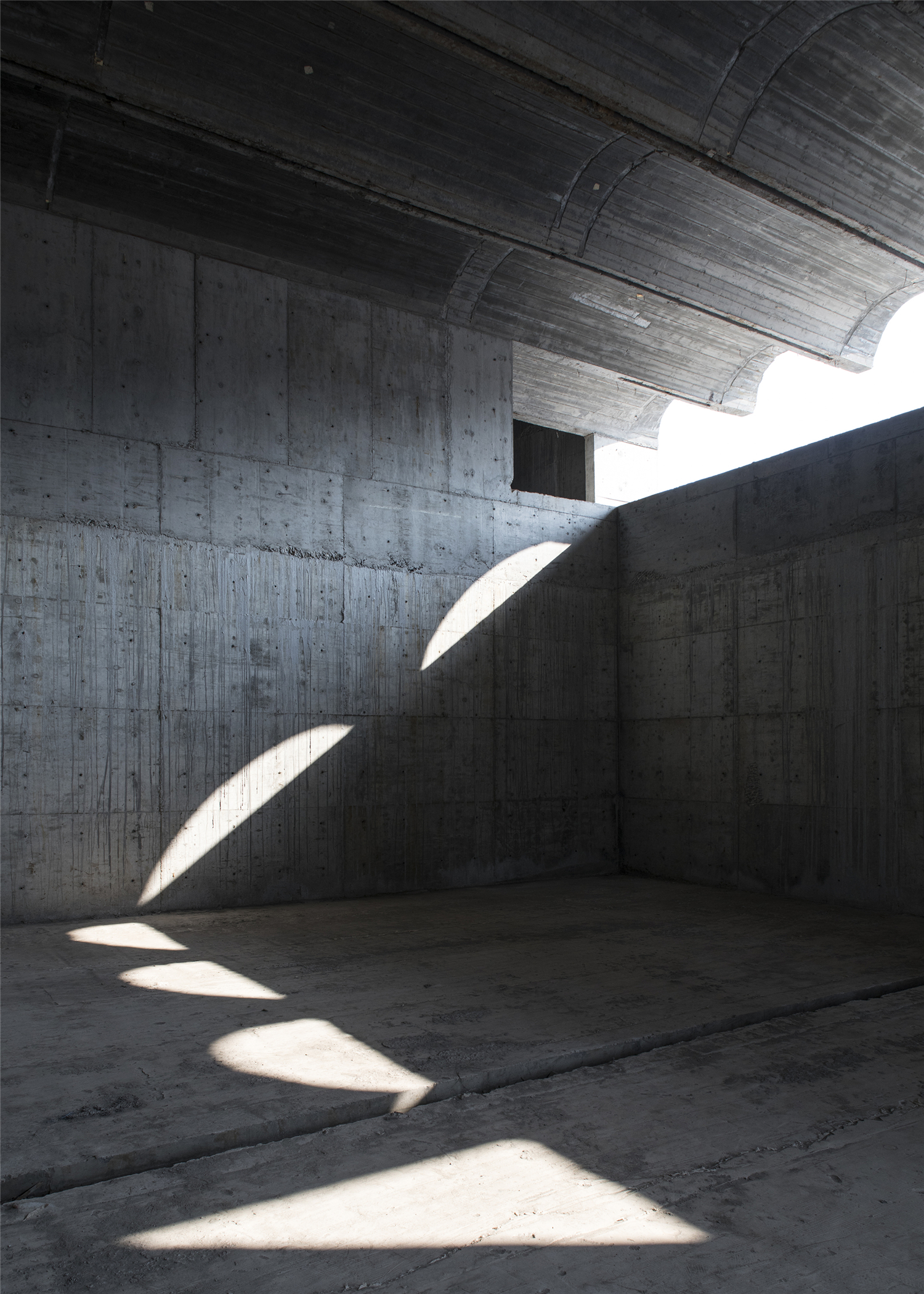
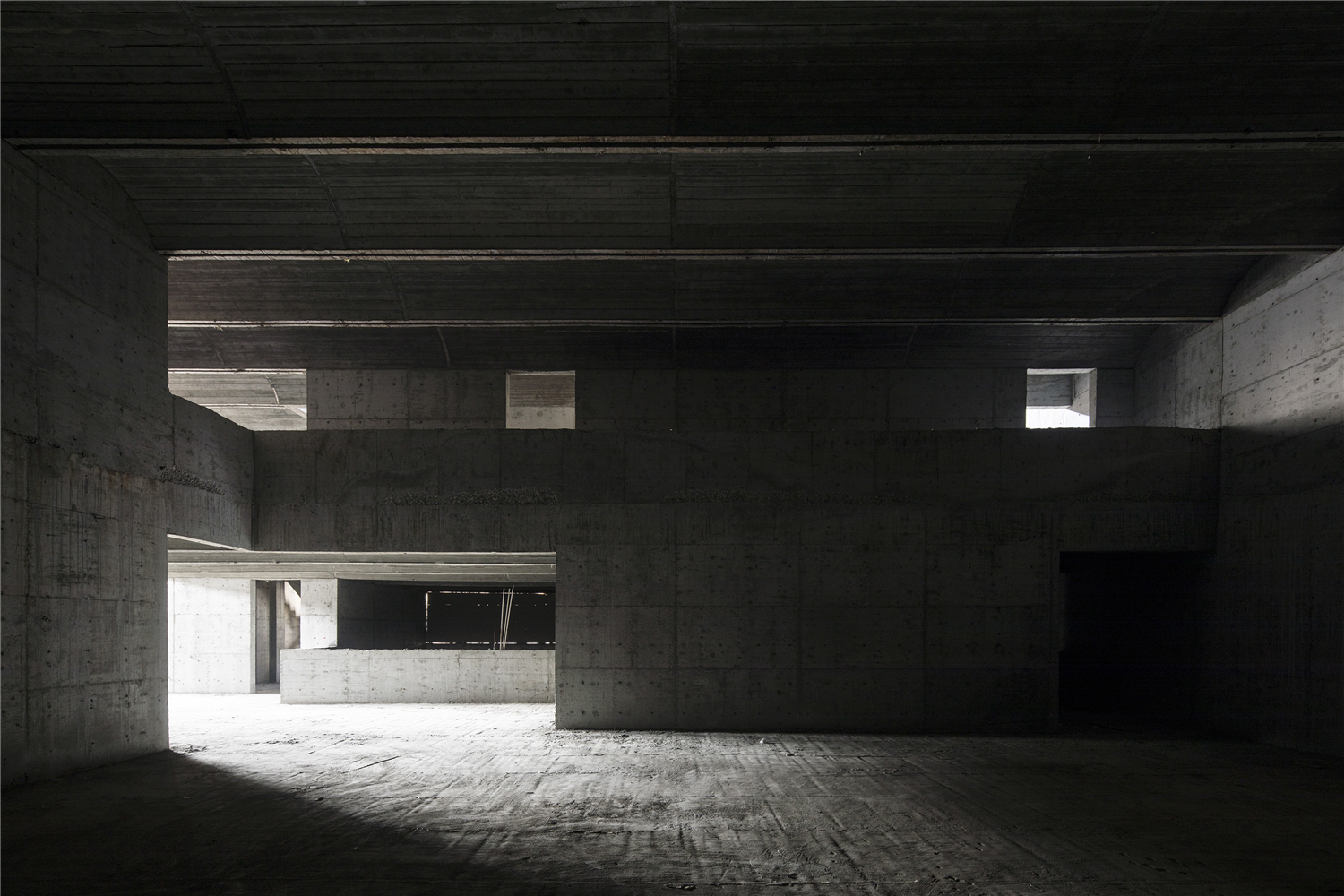
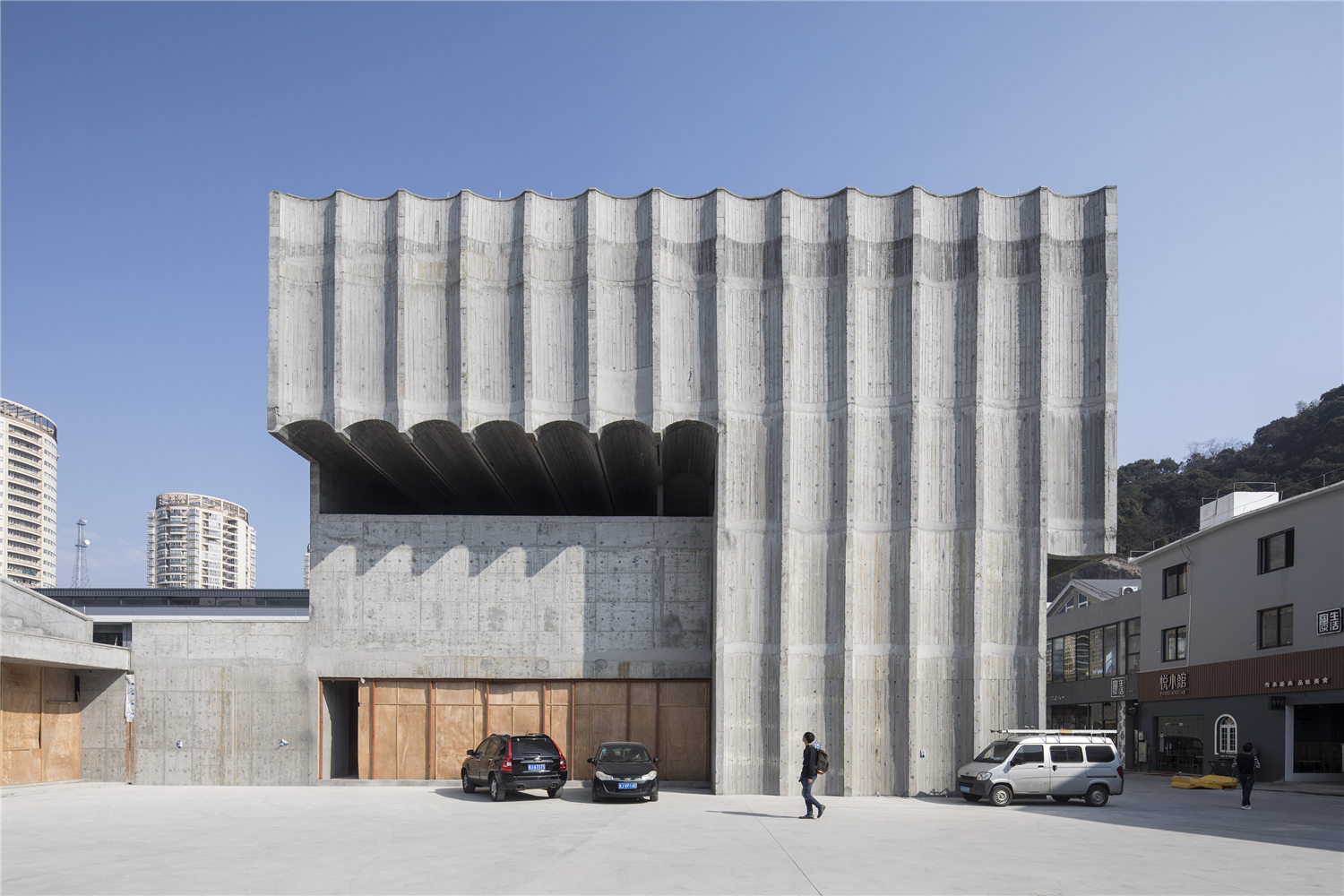
我没有使用后期的来自电脑或者录音室的音乐。所有的音乐——电吉他,都是卖卖在美术馆的不同的空间里录得。人声也是所有摄制工作人员在美术馆里录得。我已经第二次用这种方法。这些录得的声音必定包含了录制所在空间的听觉特征,还有一些不可预知的声音。那些声音起初是令人讨厌的。但后来我意识到,正是这些声音闯过了由混凝土建起的边界。这些声音指出了美术馆作为一个空间的真实性,或者同时的相反面,虚幻性。
I do not use ready music from computer or studio. All music pieces, the electric guitar, are recorded in different spaces of the art museum by Mai Mai in live. The people’s voices are also recorded by the crew in the museum. This is the second time I use this method. These recorded sounds definitely embody the acoustic characteristics of the space recording them, with other unexpected sounds. These auditory elements at first seem hateful, yet later I realize that they are sounds barging in the concrete boundary. They point to the authenticity of the art museum as a space, or the exact antithesis, the illusiveness.
在插头插入音箱的瞬间,声音使一个世界生成。声音驱动着影像的构成。声音和时间黏连在一起。声音拥有一种穿越边界的能力。
The moment when the guitar combo is plugged in, a world is becoming. The sound motivates the formation of image. The sound is adhered to time. The sound has the ability to cut through boundaries.
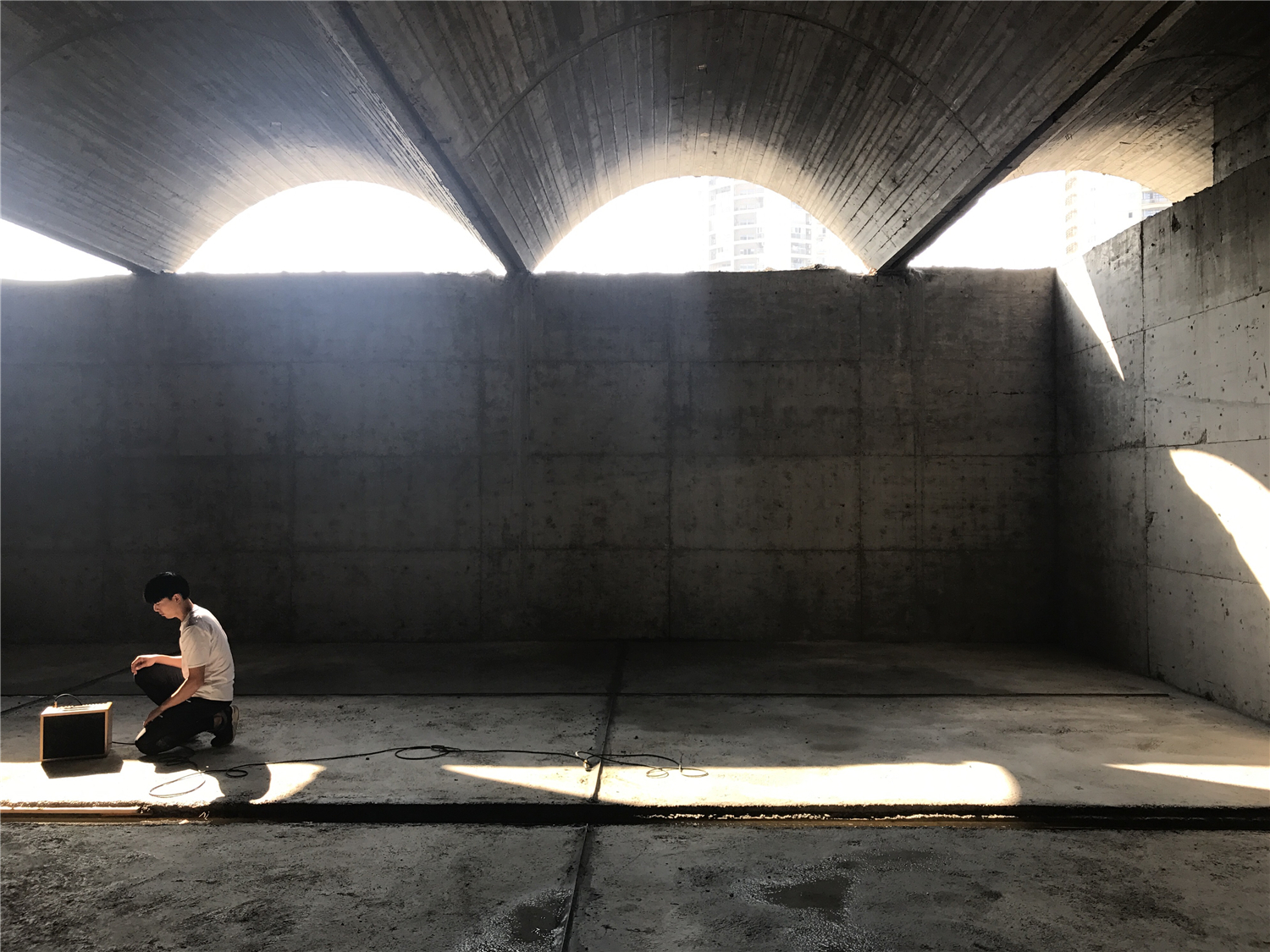
也许,从这些方面来看,美术馆可以被指为一个声音艺术作品。
Perhaps, judging from these aspects, the Art Museum could be treated as a sound art work.
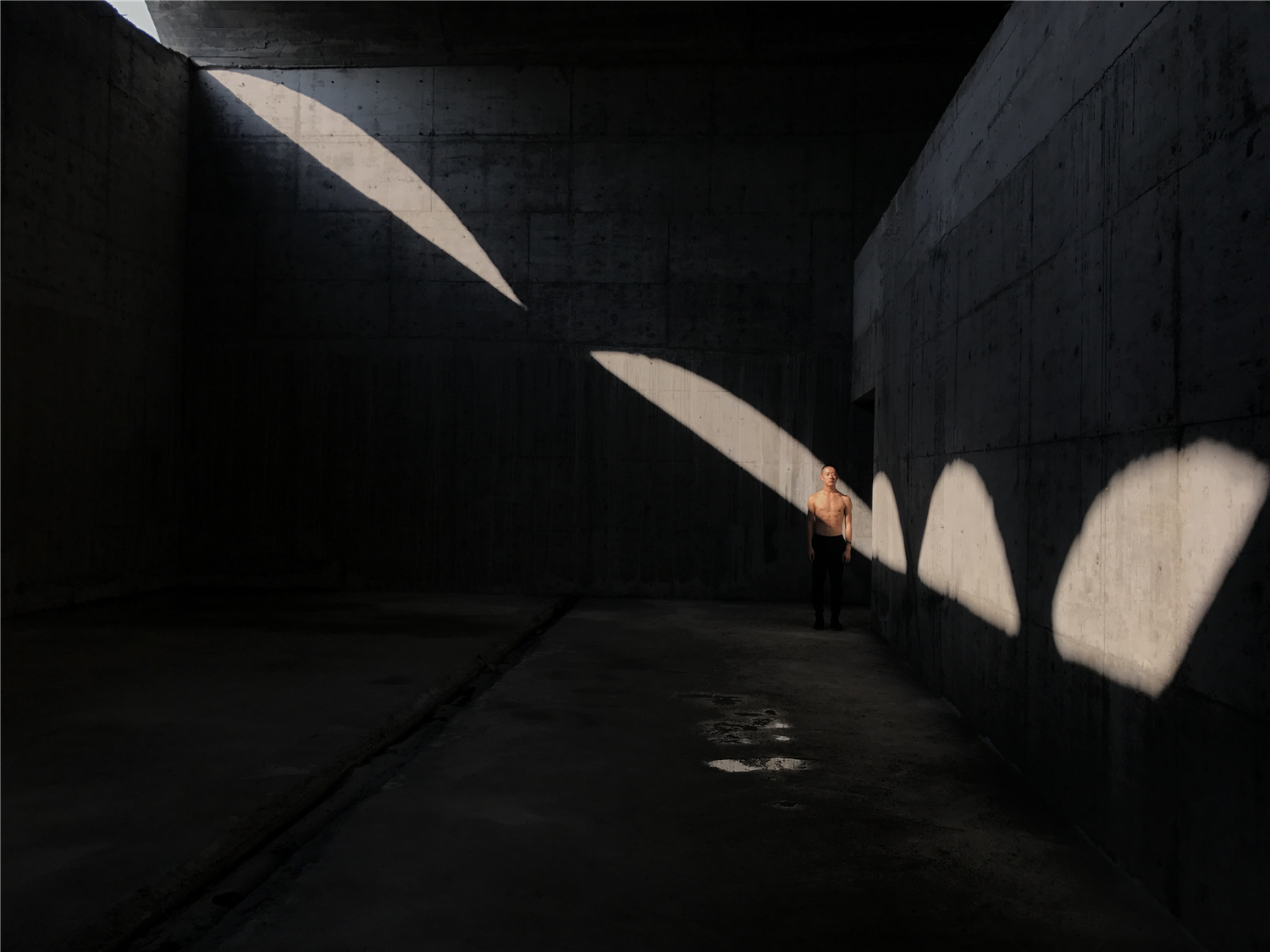

即物的美术馆
ART MUSEUM AS OBJECT
柳亦春
20180707
走在仿佛刚刚脱自泥胎的这个建筑的物体里,他在想可能没有比这更完美的建筑状态了。
Walking in the building, an object seemingly just out of kiln, he reckon if there could be a more perfect state of architecture.
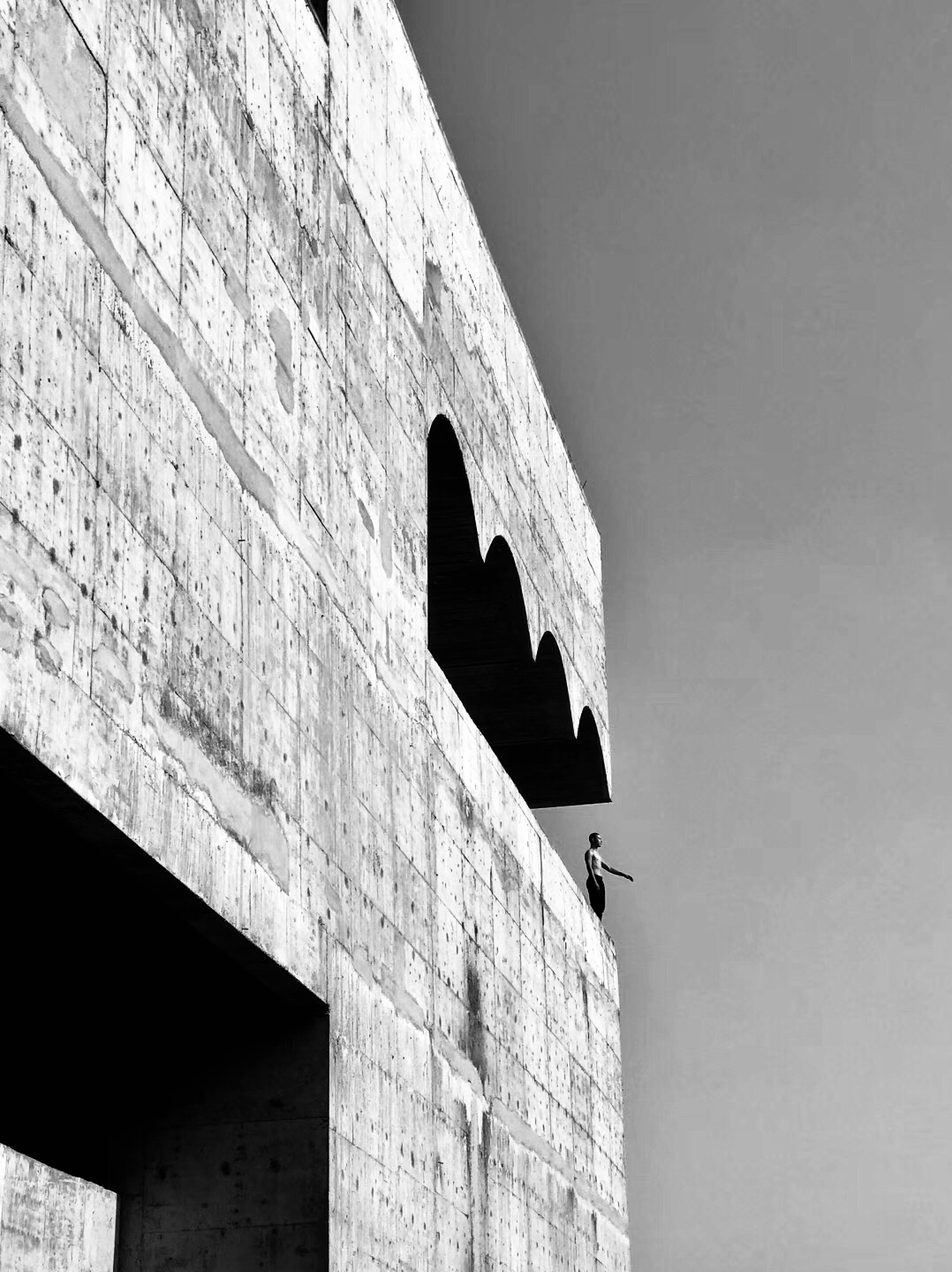
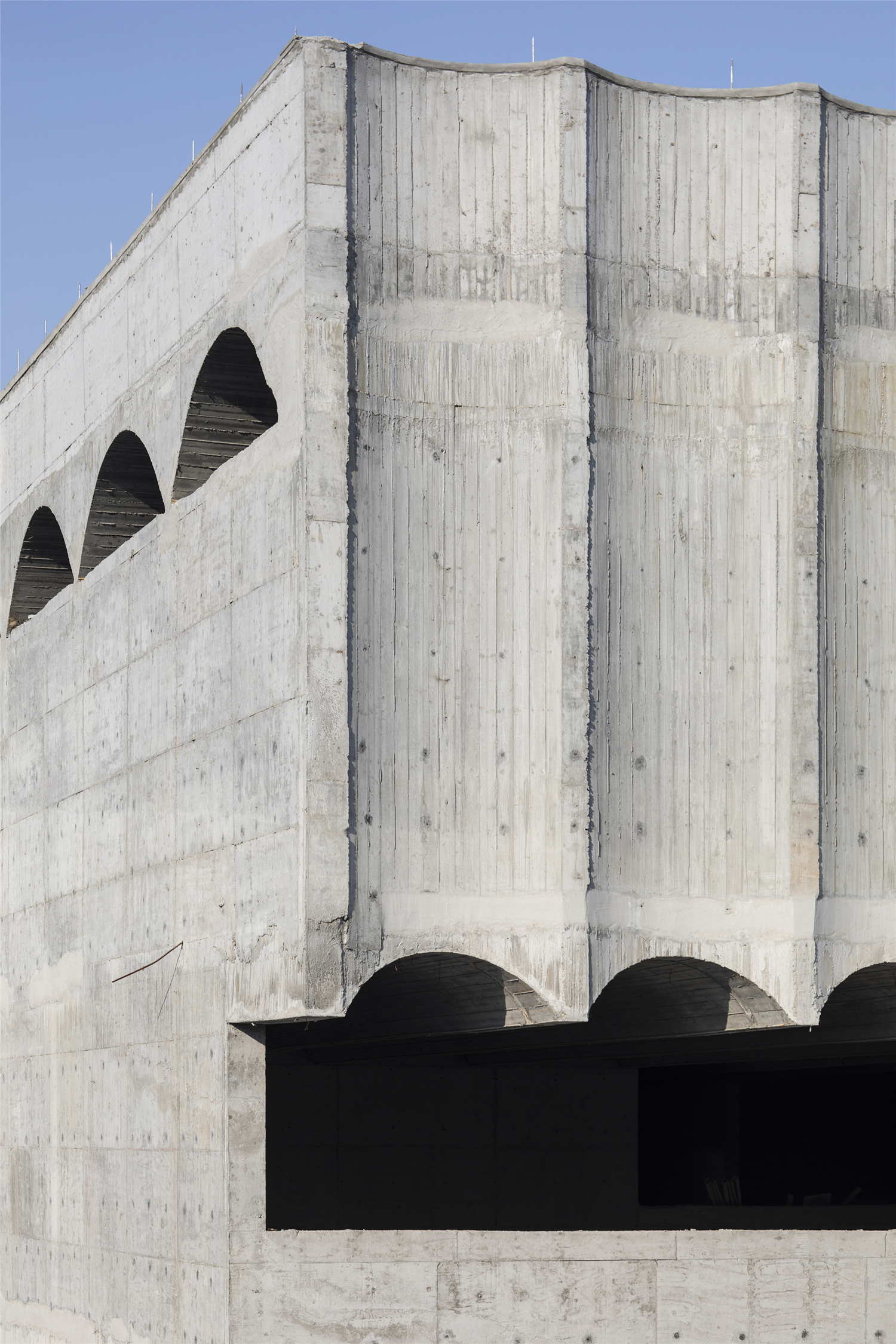
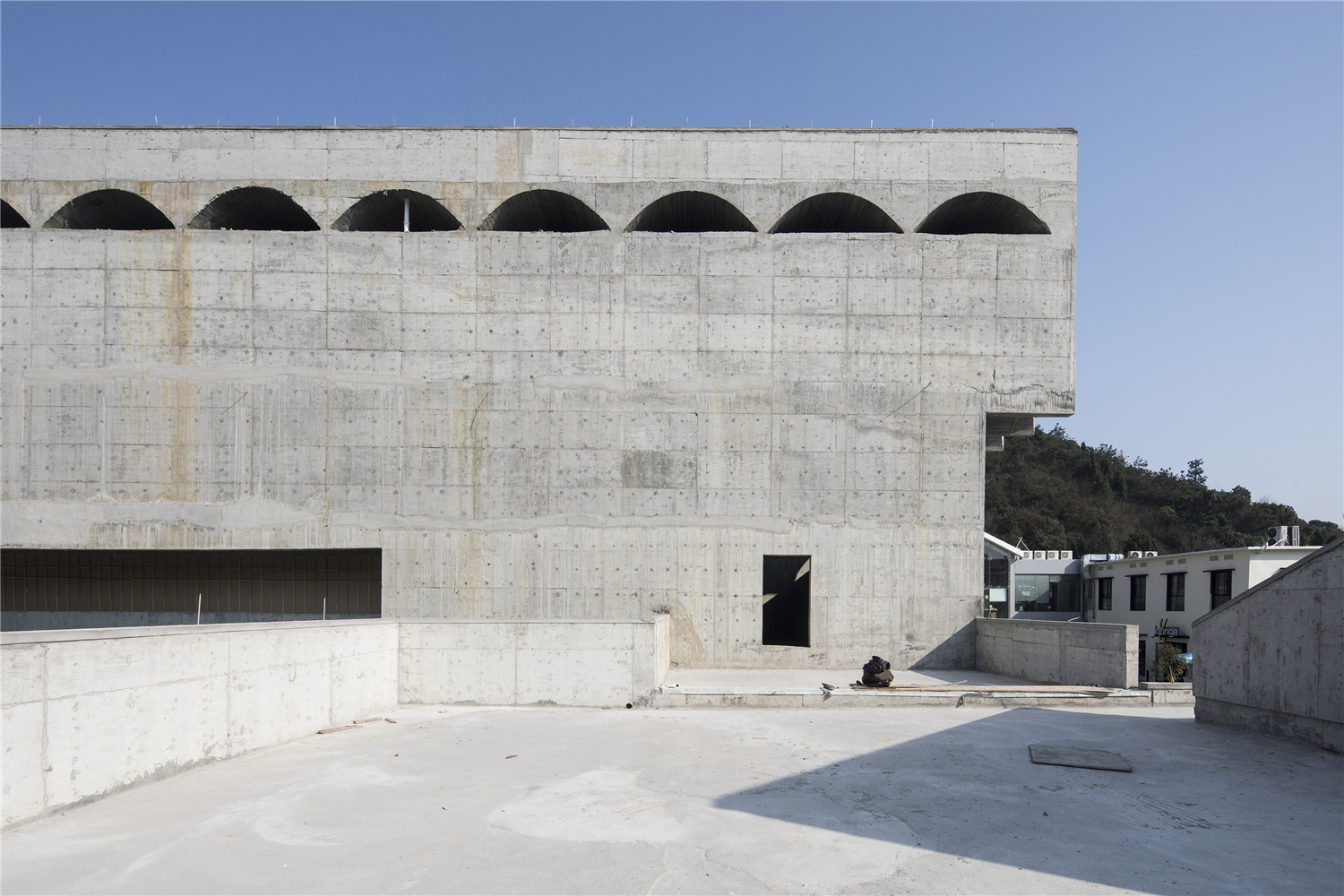
看到经历种种挫折终于浇筑完毕的美术馆的墙和地的混凝土的坯体,尽管内部的设备和门窗都还没有安装,或者说,趁着内部的设备和门窗还没有安装,建筑师上上下下地走着。目光似乎并不聚焦在任何地方,经过不断的明暗交替,直到经过顶层面东的那个开口,看到扑面而来的被连续的拱形勾勒的那深绿的夹杂着浅绿的山色,建筑师觉得他心中的建筑已然完工。
Having seen the concrete body of the finally-completed art museum, after so many frustrations, though the interior equipment and windows have not been set up yet, the architect walks up and down. Eyes not fixed on anywhere until reaching the aperture facing east on the top floor, after constant alterations of light and dark, the architect feels the architecture in his mind has been finished. He sees the distant green mountains framed by the successive vaults in the front.
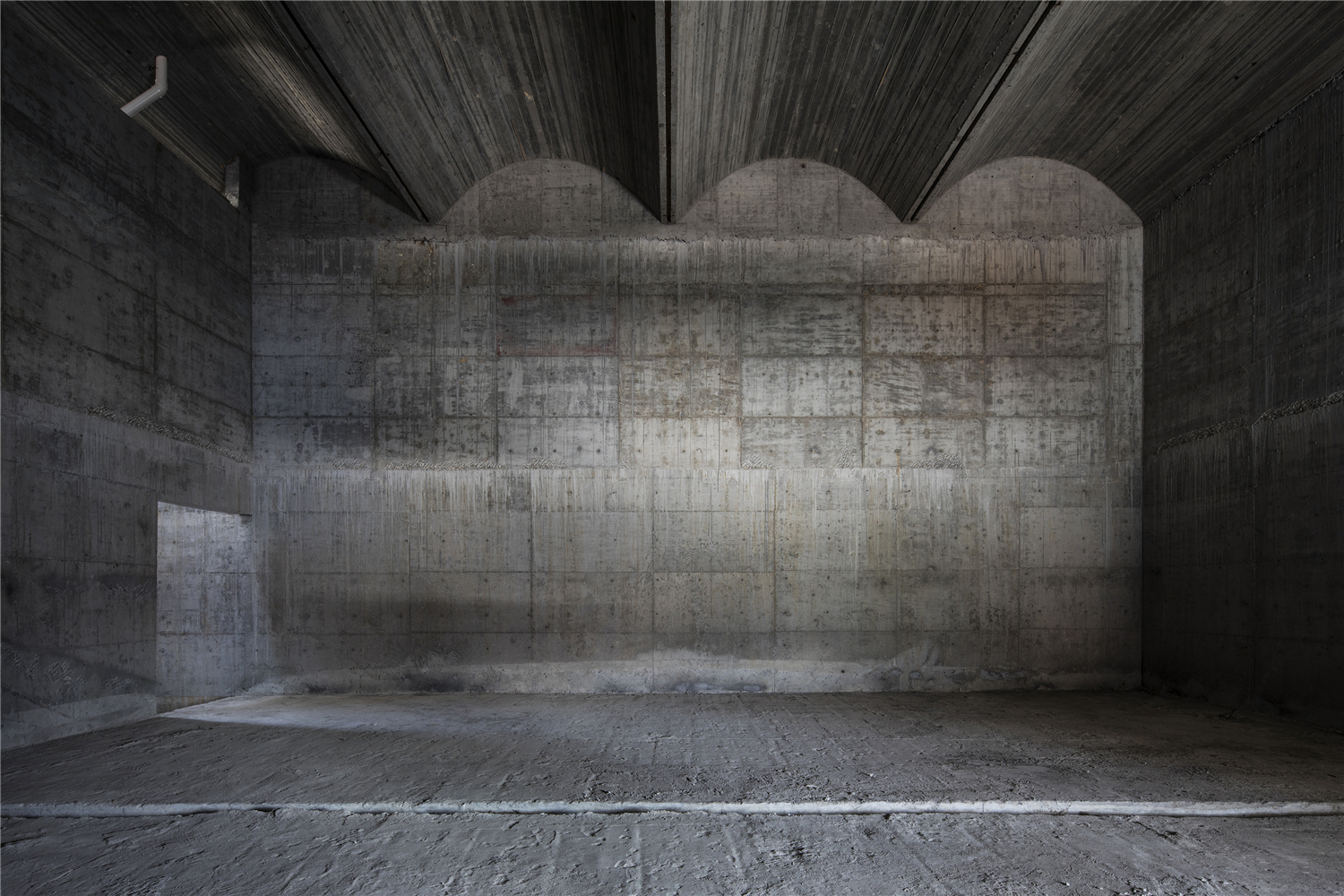
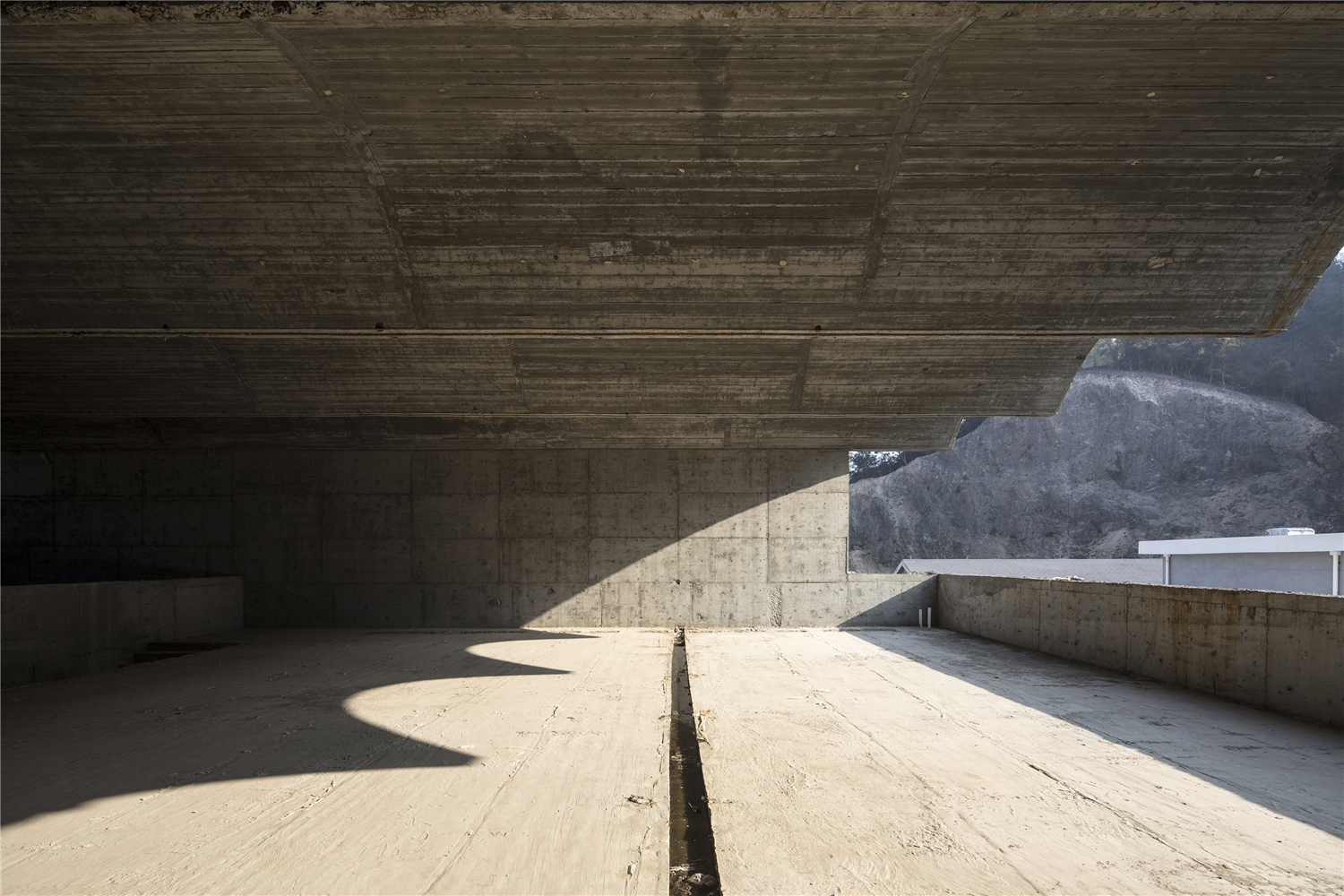
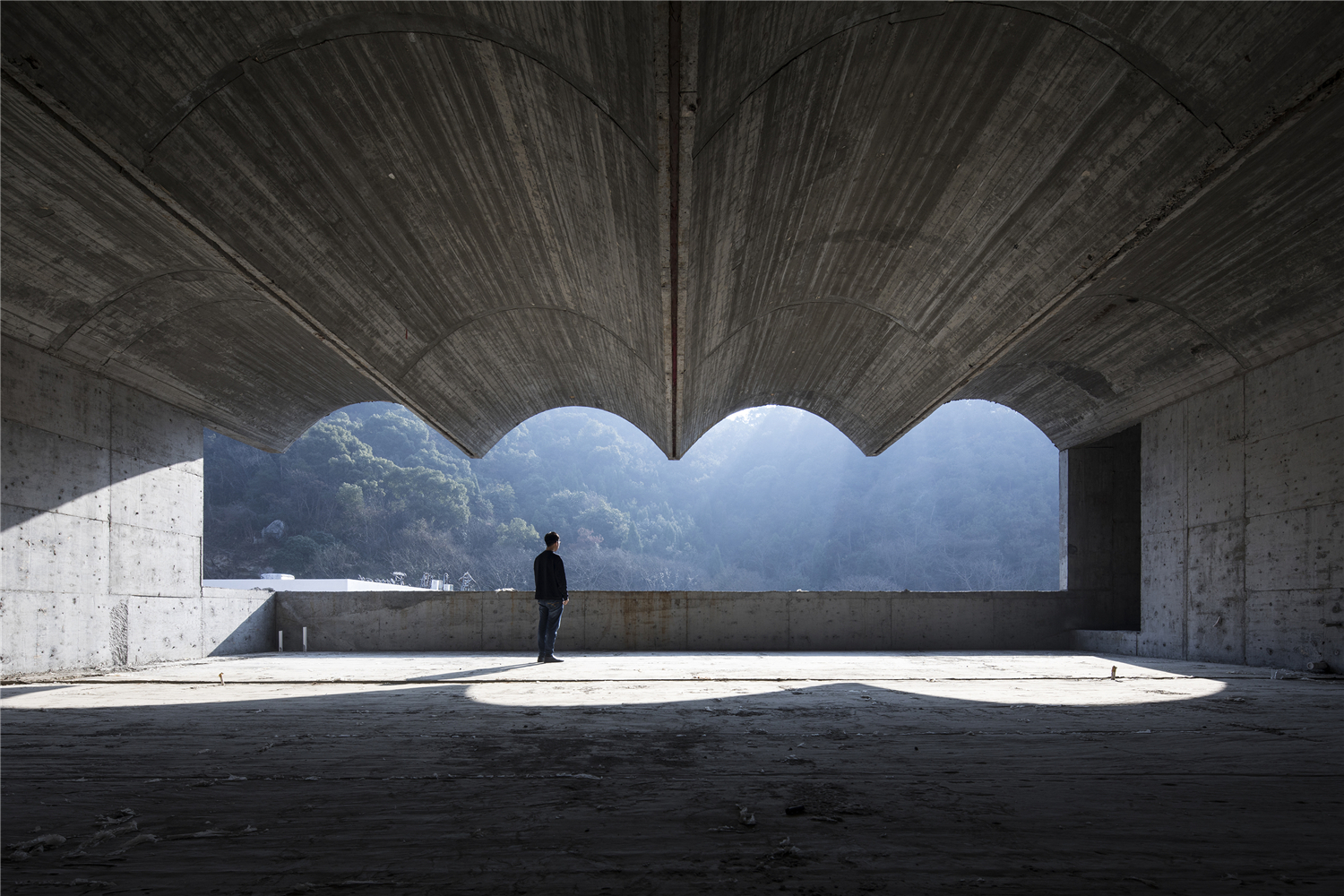
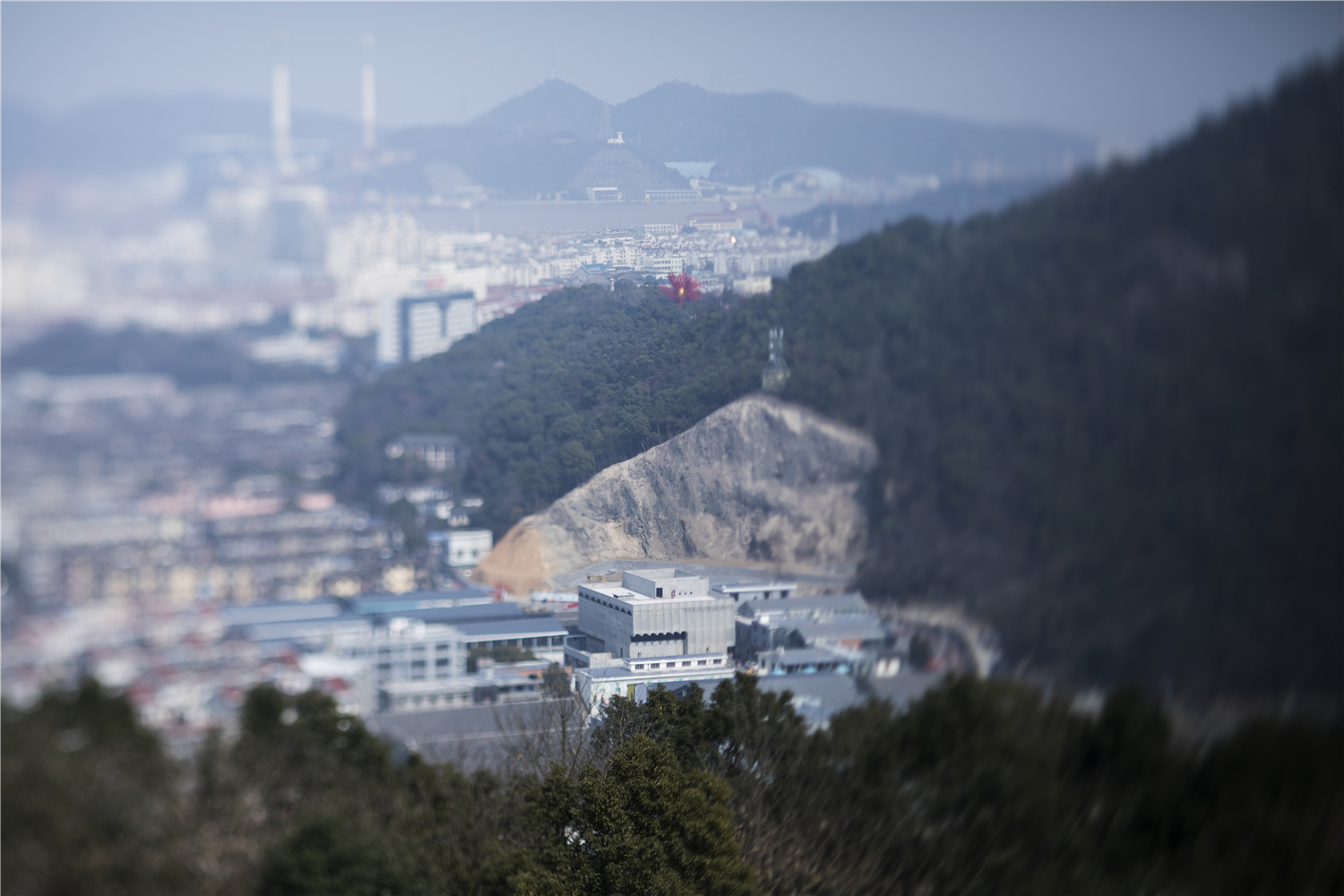
因为许多浇筑的错误,因为并不精确的甚至是极其粗放的施工(甚至施工过程中因为模板支撑不够还有过局部的坍塌),在所有后面的工序没有开始之前,一切错误都不是错误,或者说,一切错误都不会显现。在一个建筑被建造的过程中,这样的时刻只有建筑师自己才能看到,因为只有他才能体会以及确定,从图纸变成实物的过程中,空间诞生的时刻。这一刻,他非常愿意称之为艺术。建筑的建造是为了他人而使用的,而这一刻,这个建筑只属于建筑师自己。
Errors occur during pouring, or as a result of imprecise, even wild construction. But before the start of succeeding procedures, all errors are not errors, or to say, not errors that show up. During the process when architecture is being built up, these moments belong to the architect alone. Only he can experience and assure, from sketches to object, the birth of a space. This shining moment, he would like to call it art. The construction of architecture is for use of others, but this moment, the architecture is for the architect.
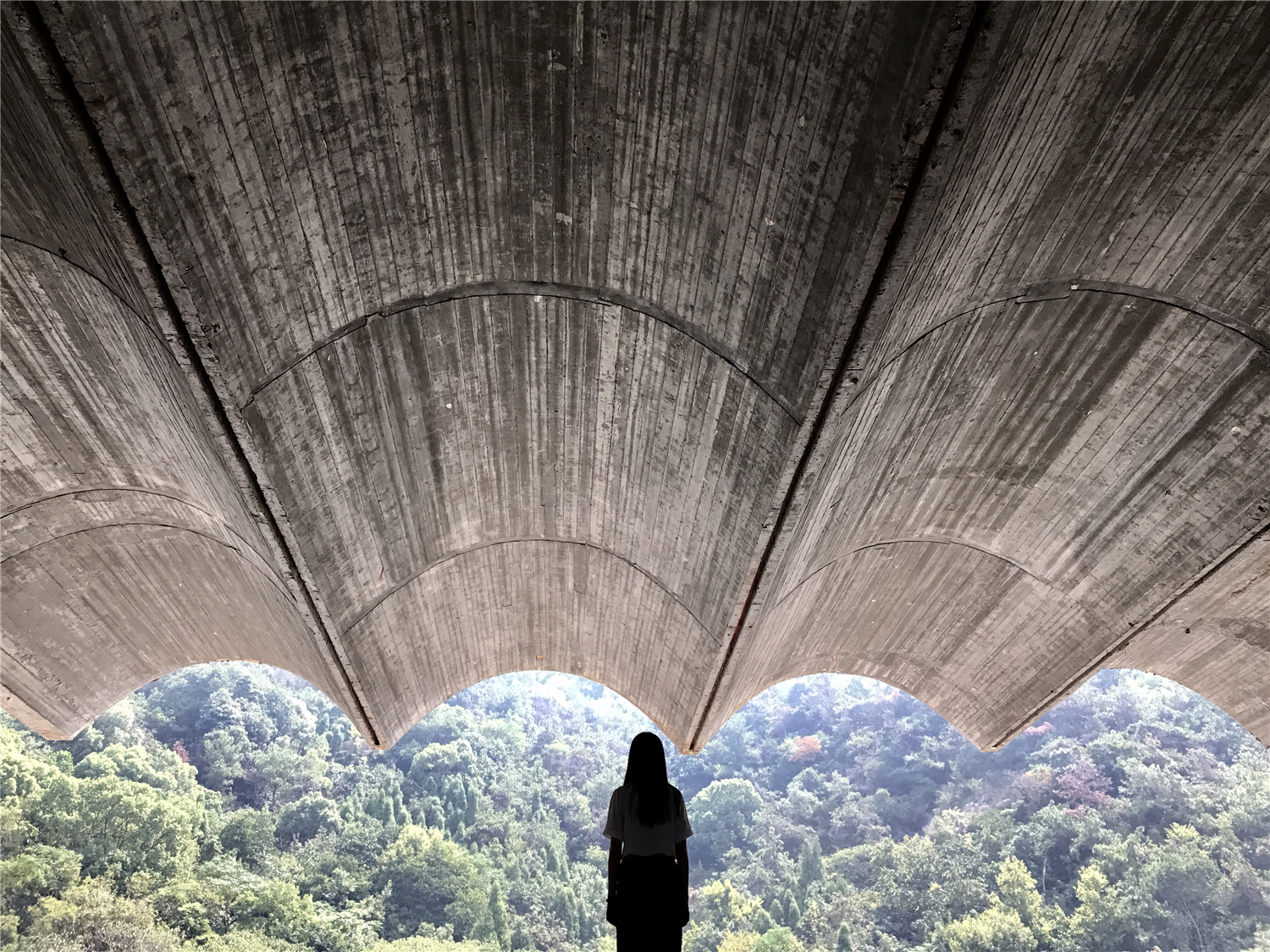
因为项目资金的原因,这一刻保持了很久。所以这一刻也开始被更多的人看到。建筑师似乎心底里也更愿意让这一刻保持地更长久一些。结果即便在这样的仍然算是工地的建筑里,还没有成为美术馆的美术馆办了两次艺术展以及一次热闹的圣诞派对。还有即将新婚的情侣看中这样的地方,或者是逃课的学生在这里游荡。在这样的空间里摄影师裸身自拍,遇见披着婚纱的新娘,竟然相互点了点头而不觉得尴尬,也是非常令人惊讶了。是这废墟般的空间所赋予的人的身体的自由吗?还是俨然这其中的任何物体已然是艺术的一部分了?
Due to issues of fiscal support of the project, this moment lasts very long. Thus it starts to be seen by many more people. The architect seems to welcome this phenomenon. Therefore, even in such a building regarded still as a construction site, a not-ready art museum, two exhibitions and a Christmas party have been held. It is a place where bride-to-be meets truant; or nude photographer shooting self-portrait, to whom she nodes without embarrassment. How surprising it is. Does the ruin-like space endow people with freedom of the body? Or does everything in this building become part of arts?
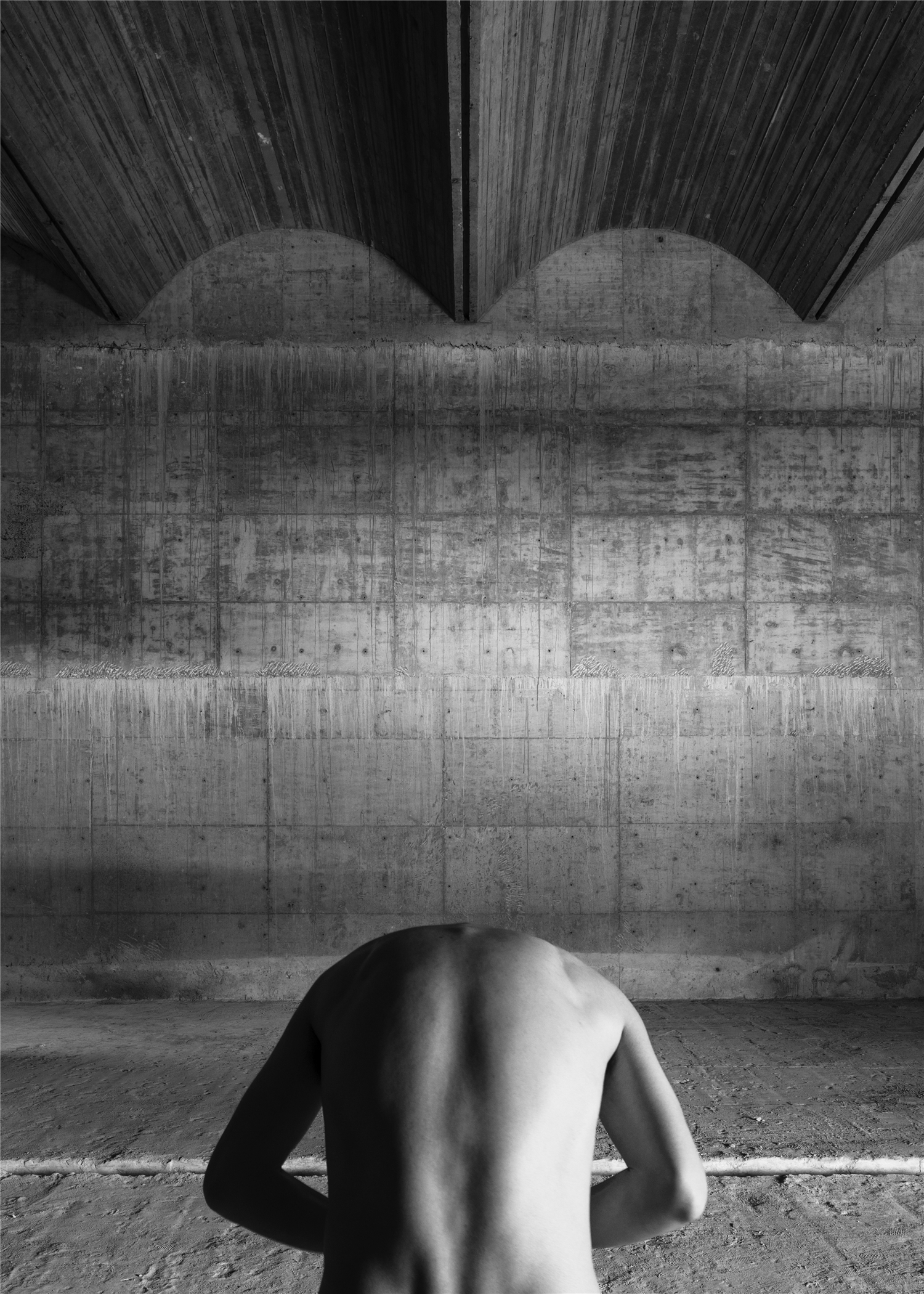
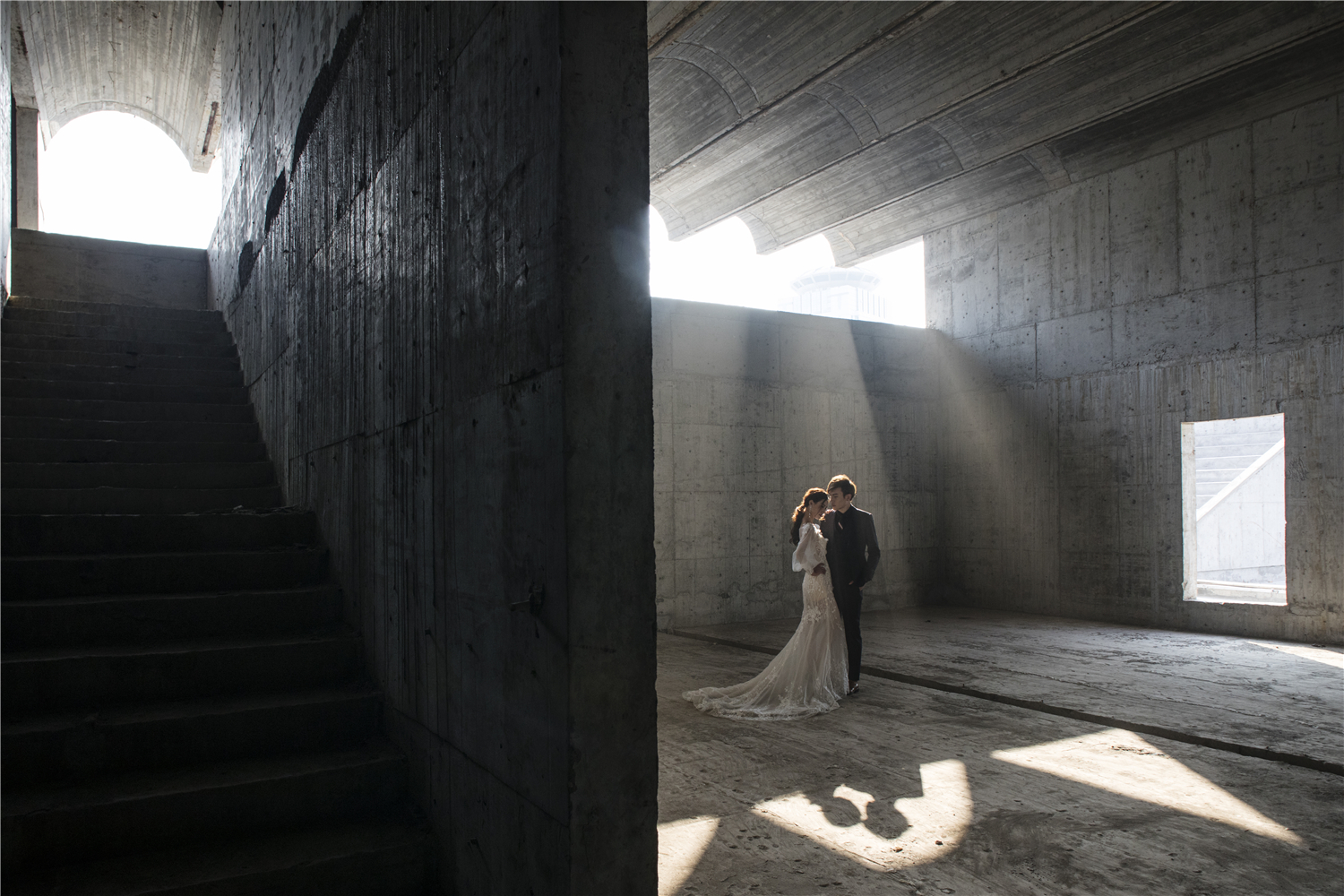
这一刻,建筑几乎作为物自体的存在并不多见。所以萌生了以某种方式把它记录下来的想法,于是便有了殷漪和刘亚囡的声音与舞蹈的艺术创作,在名为《美术馆》的这两段一长一短的影像中,空间、声音、舞蹈,以及脱离这画面之外的艺术家本人的“凝视”,它们都各自独立存在,也当然相互依存。无数的片段被剪辑成为4分钟和15分钟的短片,它们还有无数的组合可能。这些凝视和空间本身的静默,谁可以更为久远呢?
The time when architecture exists as object itself is rare. That is why the architect gets this idea: to record it. Thus we have the artistic creations, with sound and dance, by Yin Yi and Liu Yanan. In these two short movies – “Art Museum,” space, sound, dance, and the “gaze” beyond frame independently exists, yet being simultaneously inter-dependent. Footages used as the source for these 4-min and 15-min movies still have endless possibilities. The “gaze” and the silence of the space per se, which one can last longer?

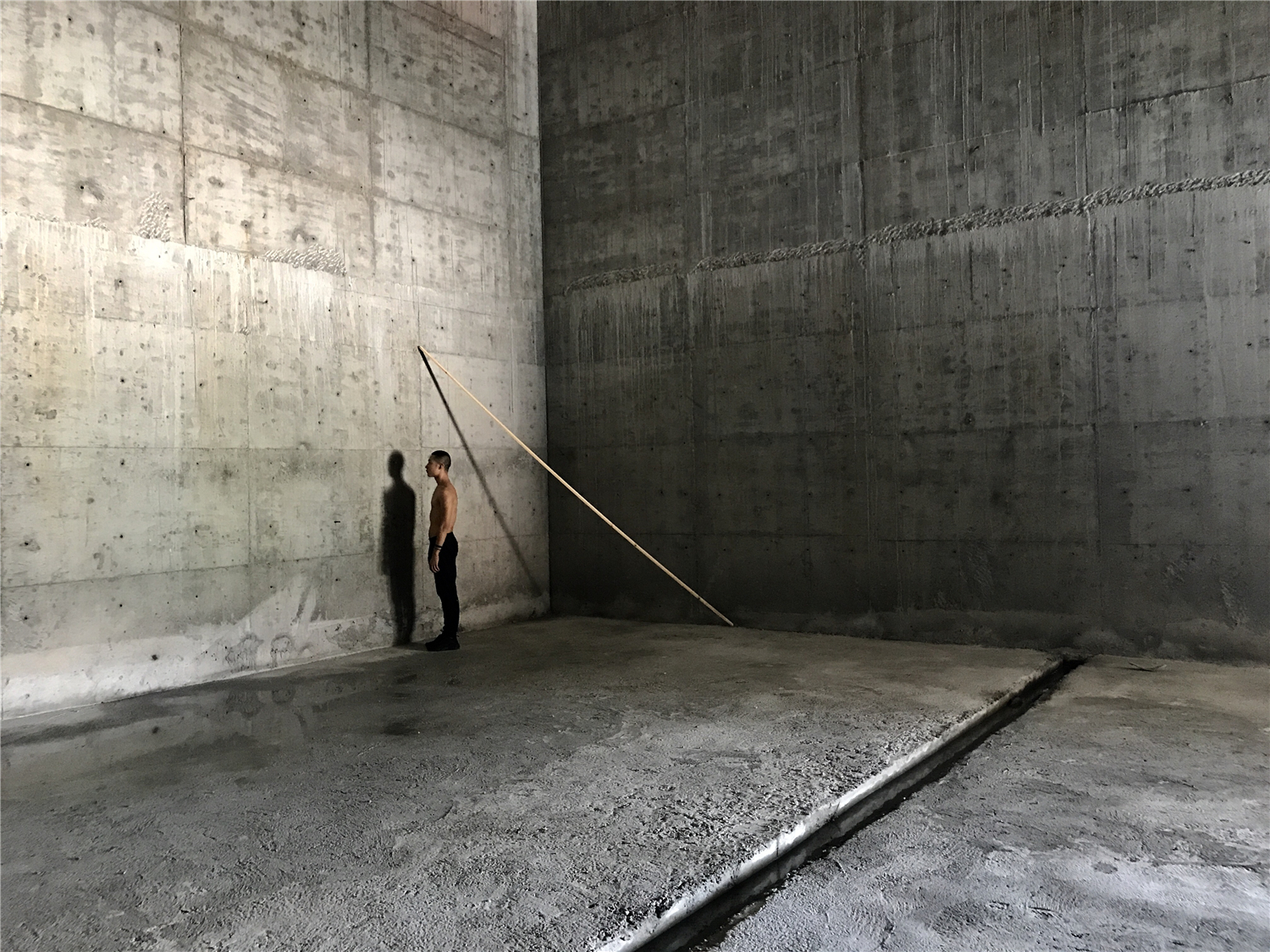
《美术馆》15分钟版 视频制作:殷漪
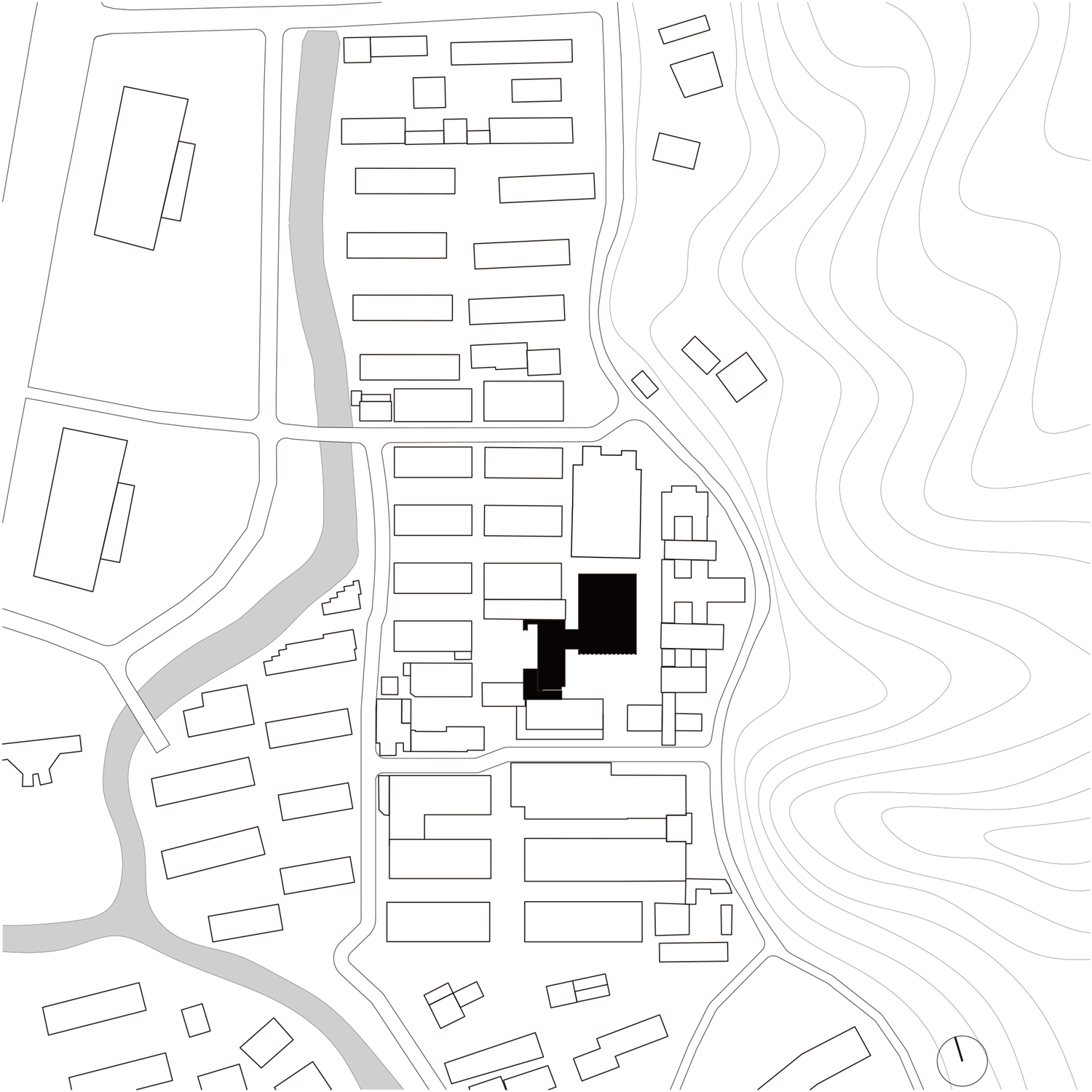
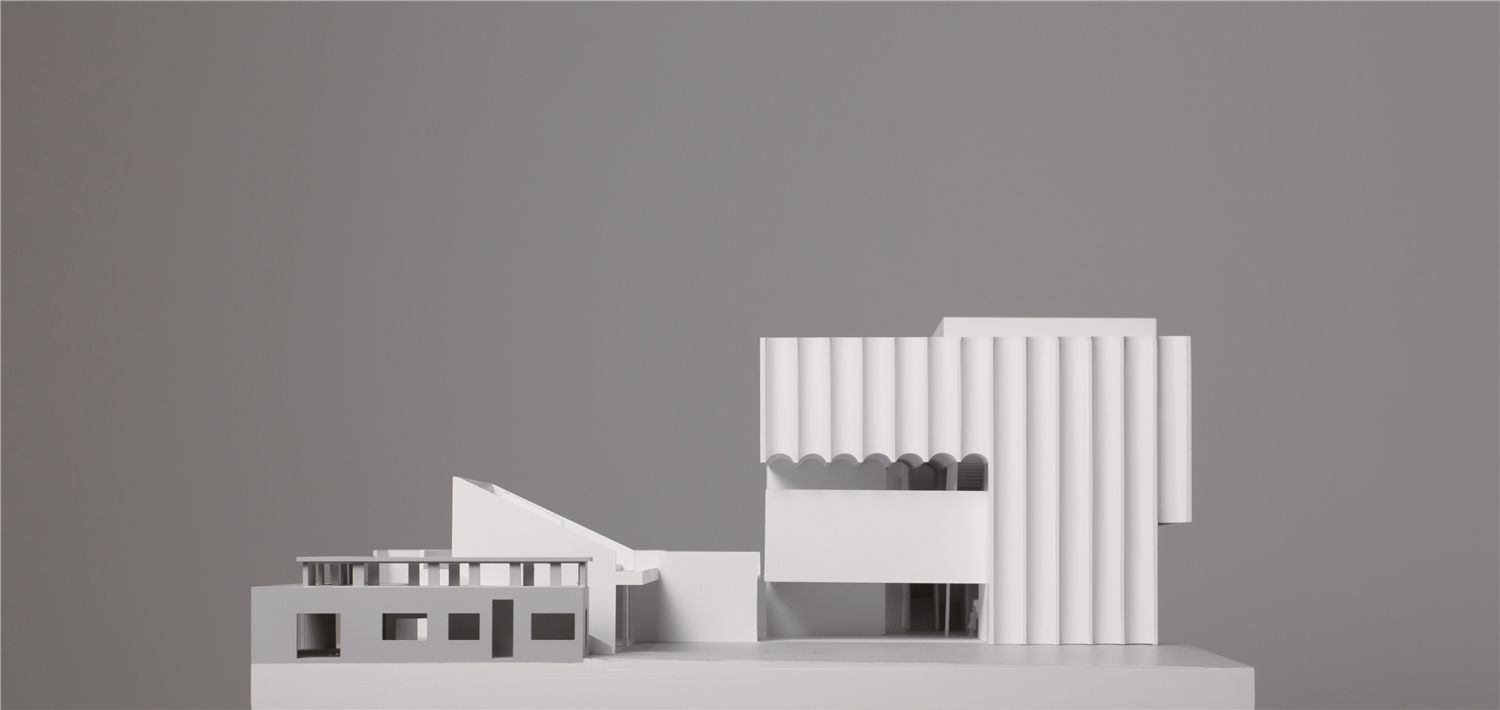
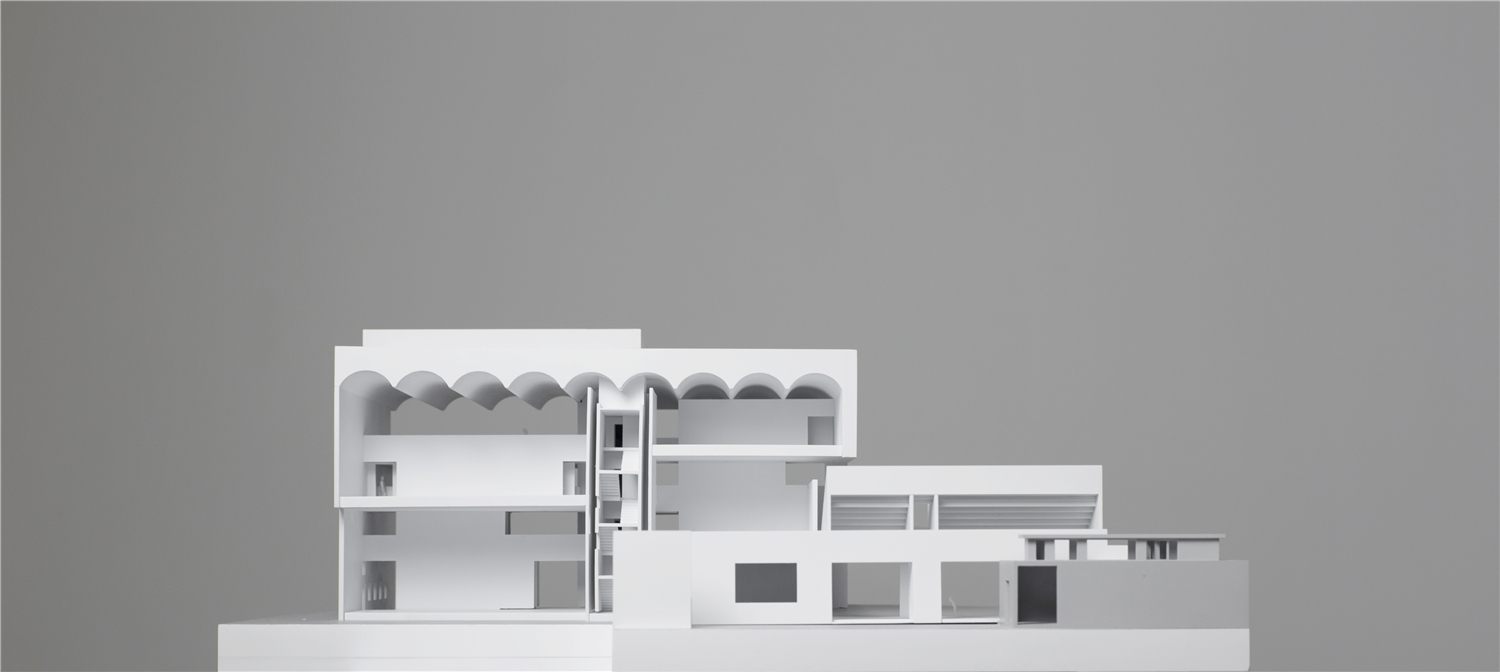
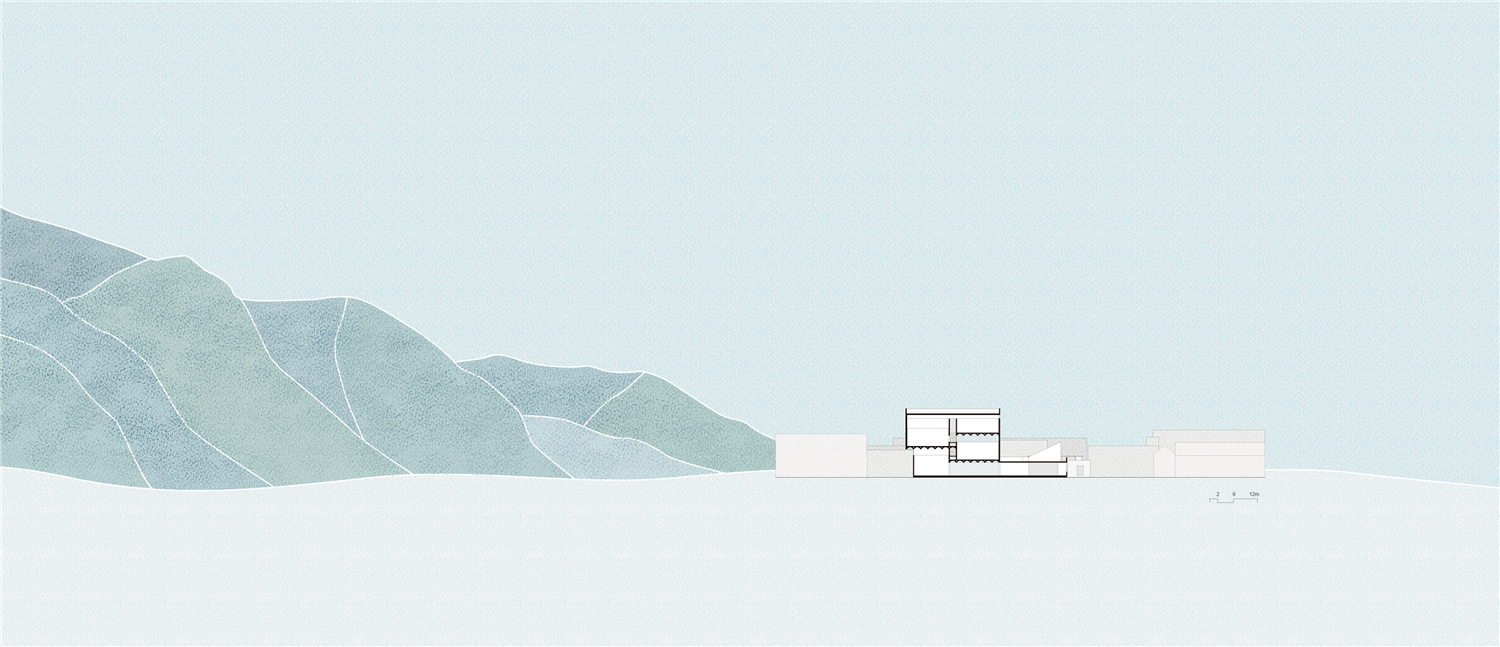
完整项目信息
台州美术馆
建造地点:浙江台州椒江区
建设规模:1040平方米
设计时间:2015.5-2015.9
建筑层数:地上四层
建筑师:大舍建筑设计事务所
主持建筑师:柳亦春
设计小组:柳亦春、沈雯
结构工程师:张准、张冲冲
Taizhou Contemporary Art Museum
Location:Shameng Food Warehouse, Fengshan Road, Jiaojiang District, Taizhou, Zhejiang
Floor Area:1040 sqm
Design Period:2015.5-2015.9
Floor:4
Architect: Atelier Deshaus
Principal in charge: Liu Yichun
Design Team: Liu Yichun, Shen Wen
Structural engineer: Zhang Zhun, Zhang Chongchong
版权声明:本文由大舍建筑设计事务所授权有方发布,禁止以有方编辑后版本转载。
上一篇:40位一线建筑师专访 |《建筑师在做什么》第二辑 有方纪念版
下一篇:FACEU脸萌科技总部办公设计:从不抛弃童真 / 一乘建筑事务所